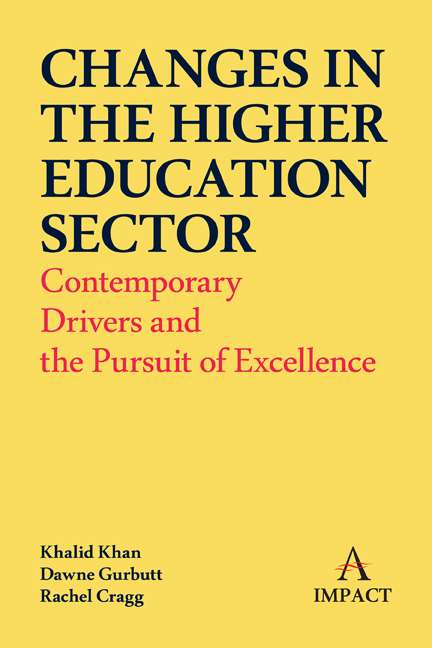Chapter 5 - Conclusions
Published online by Cambridge University Press: 13 May 2022
Summary
The Importance of Teaching Excellence
Teaching Excellence remains both a high priority and an elusive measurement. It remains a high priority partly due to the commercialisation of Higher Education (HE) which reconfigures ‘Teaching’ as a product to be valued, commodified and sold, and it remains elusive to measure because teaching is always only one-half of the equation, paired as it is with ‘learning’. Although ‘Learning and Teaching’ are often put together as if two sides of the same coin, educators and students alike will know that they do not always occupy the same space. Sometimes learning can occur totally independent of teaching, often through circumstance, reflection and experience. Likewise teaching, even good teaching, requires a fertile audience to result in impactful learning. The emphasis within the HE sector has placed ‘Teaching’ at the heart of the agenda, without fully acknowledging the role that learners play in their own education. This places the emphasis on the part of the process which is costed in financial terms and less on the social and personal investment required from learners if they are to succeed. The responsibility is placed upon the educator and the educational establishment to ensure that learning is taking place. This in no way negates the importance of teaching excellence or the role of the teacher, but it is interesting that a two-way process is often viewed through a single, institutionally based lens. Interestingly institutions are seeking to actively engage students more readily in learning and to provide them with insights on how to learn effectively as an adjunct on how to be successful. But this part of the equation is also quantified by the organisation's success in engaging students; the responsibility is perceived as essentially that of the university. This configuration of learners as passive within the learning process and the recipients of initiatives, knowledge, innovations and information is at times a problematic one in that it leads institutions to be involved in ever more complex arrangements to engage students. The language of HE is often about ‘attracting’ students to courses, programmes and institutions. Therefore the offer must be rendered ‘attractive’ – buildings, estates, timetables, value-added experience – and although all of these are important, there can be a tendency to overlook the need for students to be clear on what they want to learn and be ready and equipped to learn it.
- Type
- Chapter
- Information
- Changes in the Higher Education SectorContemporary Drivers and the Pursuit of Excellence, pp. 57 - 62Publisher: Anthem PressPrint publication year: 2022



